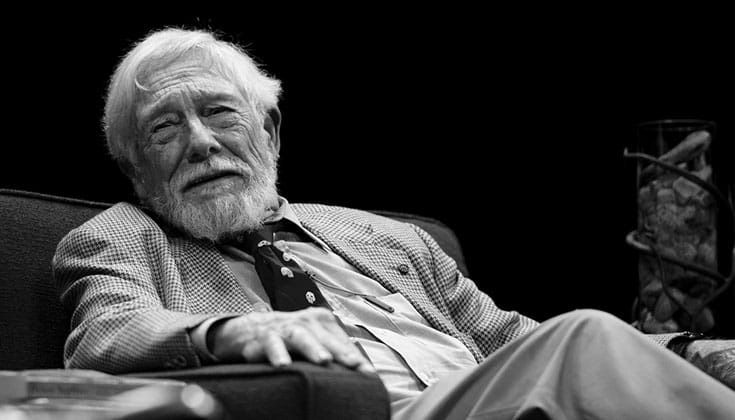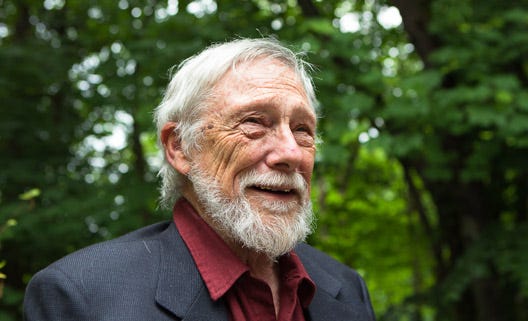Gary Snyder
Gary Snyder, born on May 8, 1930, in San Francisco, California, is a distinguished American poet, essayist, lecturer, and environmental activist.
His work is often associated with the Beat Generation, though his scope and influence extend far beyond. Snyder's poetry is deeply rooted in nature, Zen Buddhism, Native American culture, and ecology, making him a pivotal figure in the environmental movement and a key voice in American literature.
Early Life and Education
Raised in the Pacific Northwest, Snyder developed an early love for the natural world, which would become a central theme in his work. He attended Reed College in Portland, Oregon, where he met fellow poets Philip Whalen and Lew Welch. At Reed, Snyder's interest in anthropology, literature, and Asian cultures deepened. After graduating in 1951, he immersed himself in the study of Zen Buddhism, spending significant time in Japan to deepen his practice and understanding.
Literary Career and Beat Generation
Snyder's literary career began to take shape in the late 1950s. He was one of the poets who read at the legendary Six Gallery event in San Francisco in 1955, alongside Allen Ginsberg, Michael McClure, Philip Whalen, and others. This event is often cited as the birth of the Beat movement. Snyder's poetry, however, soon distinguished itself from his Beat contemporaries through its focus on nature, ecological consciousness, and Eastern philosophies.
His first book, "Riprap" (1959), showcased his unique style, combining concise, image-driven language with a profound appreciation for the natural world. The collection established Snyder as a serious and innovative voice in American poetry.
Zen Buddhism and Asian Influence
Snyder's Zen Buddhist practice profoundly influenced his life and work. His time in Japan, studying Zen, not only deepened his spiritual practice but also enriched his poetic vision, blending Eastern thought with Western literary traditions. His experiences in Asia are reflected in several of his works, including "The Back Country" (1967) and "Regarding Wave" (1970).
Environmental Activism and Academia
Beyond his literary contributions, Snyder is renowned for his environmental activism. His advocacy for bioregionalism, sustainable living, and indigenous rights has had a lasting impact on environmental thought and policy. Snyder's seminal essay collection, "Turtle Island" (1974), which won the Pulitzer Prize for Poetry, articulates his vision of a harmonious and sustainable relationship between humans and the earth.
Snyder has also had a significant career in academia, teaching at the University of California, Davis, and sharing his knowledge on environmental issues, literature, and ethnopoetics. His lectures and essays have inspired generations of environmentalists, writers, and students.
Legacy
Gary Snyder's legacy is multifaceted. As a poet, he has contributed significantly to American literature, offering a vision that is both deeply personal and universal. His work encourages a reconnection with the natural world, urging mindfulness and respect for the environment. Snyder's influence extends beyond poetry into environmental activism, where his ideas on sustainability, community, and ecological responsibility continue to resonate.
Snyder's poetry and essays have not only captured the essence of the American landscape but have also bridged Eastern and Western philosophies, offering insights into how humanity might live more harmoniously with the planet. His life and work embody a commitment to exploring the interconnections between nature, culture, and spirituality, making Gary Snyder a seminal figure in the landscape of 20th and 21st-century American thought.

